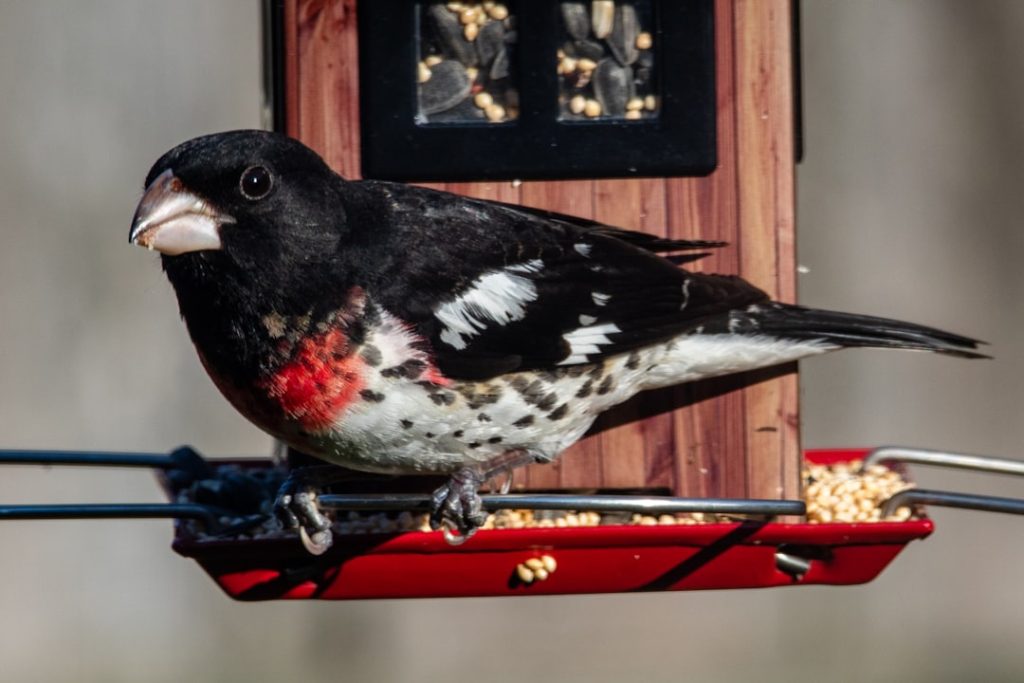In recent years, there has been a notable increase in urban and suburban residents keeping chickens in their backyards. This trend is driven by several factors, including a growing interest in sustainable living, a desire for fresh and healthy food, and a resurgence of traditional homesteading practices. Many city and suburban dwellers have found that raising chickens can be both rewarding and enjoyable, while also providing a source of fresh eggs and meat.
Consequently, urban chicken keeping has gained popularity, with an increasing number of people opting to raise their own flocks in their backyards. The rise of urban chicken keeping can also be attributed to heightened awareness of the environmental and ethical concerns associated with factory farming. Many individuals are troubled by the conditions in commercial chicken farms and the environmental impact of large-scale poultry production.
By keeping their own chickens, urban and suburban residents can ensure that their eggs come from hens raised in humane conditions with access to outdoor space. Furthermore, raising chickens at home allows people to reduce their carbon footprint by producing food locally, eliminating the need for long-distance transportation. As a result, urban chicken keeping has become a popular method for individuals to take control of their food sources and adopt more sustainable lifestyles.
Table of Contents
- 1 The benefits of raising chickens
- 2 The increase in backyard coops
- 3 The popularity of farm-fresh eggs
- 4 The impact on sustainable living
- 5 The rise of chicken-keeping communities
- 6 The future of keeping chickens in urban and suburban areas
- 7 FAQs
- 7.1 What is the growth in keeping chickens?
- 7.2 What are the reasons for the growth in keeping chickens?
- 7.3 What are the benefits of keeping chickens?
- 7.4 What are some considerations for those interested in keeping chickens?
- 7.5 What are some popular chicken breeds for beginners?
- 7.6 What are some common challenges in keeping chickens?
Key Takeaways
- Urban chicken keeping is on the rise, with more people in urban and suburban areas choosing to raise chickens in their backyards.
- Raising chickens comes with a range of benefits, including a sustainable source of fresh eggs, natural pest control, and a connection to food production.
- Backyard coops are becoming increasingly common, as more people seek to take control of their food sources and live a more sustainable lifestyle.
- The popularity of farm-fresh eggs is growing, with many people preferring the taste and quality of eggs from their own backyard chickens.
- Keeping chickens in urban and suburban areas has a positive impact on sustainable living, promoting self-sufficiency and reducing reliance on industrial food production.
The benefits of raising chickens
Fresh and Nutritious Eggs
One of the most obvious advantages is the access to fresh, high-quality eggs. Home-raised eggs are often considered superior in taste and nutritional value compared to store-bought eggs, as they come from hens that are allowed to roam freely and eat a natural diet.
A Source of Meat and Educational Opportunities
In addition to eggs, chickens also provide a source of meat for those who choose to raise broiler chickens. This can be a cost-effective way to add high-quality protein to one’s diet, as well as a way to ensure that the meat comes from animals that have been raised humanely. Raising chickens also provides an opportunity to teach children about where their food comes from and the responsibilities of caring for animals.
Pest Control and Sustainable Living
Many families find that keeping chickens provides an educational experience for children, as they learn about animal husbandry, biology, and the importance of sustainable living. Additionally, chickens can help with pest control in the garden by eating insects and weeds, reducing the need for chemical pesticides. Overall, raising chickens can be a rewarding and enriching experience that provides numerous benefits for both individuals and families.
The increase in backyard coops

As the popularity of urban chicken keeping has grown, there has been a corresponding increase in the number of backyard coops in cities and suburbs across the country. Backyard coops come in a variety of shapes and sizes, ranging from small, portable coops that can accommodate just a few hens to larger, stationary structures that can house a larger flock. Many urban and suburban residents have found creative ways to incorporate coops into their backyard spaces, using repurposed materials and innovative designs to create functional and attractive housing for their chickens.
The increase in backyard coops can be attributed to the growing availability of resources and information for aspiring chicken keepers. There are now numerous books, websites, and social media groups dedicated to urban chicken keeping, providing guidance on everything from coop design and construction to chicken care and health. Additionally, many cities and towns have revised their zoning laws to allow for backyard chicken keeping, making it easier for residents to legally keep chickens on their property.
As a result, more and more people are finding that it is feasible to raise chickens in an urban or suburban setting, leading to an increase in backyard coops across the country.
The popularity of farm-fresh eggs
One of the main attractions of urban chicken keeping is the opportunity to enjoy farm-fresh eggs on a regular basis. Farm-fresh eggs are prized for their superior taste, vibrant yolks, and higher nutritional content compared to store-bought eggs. This is because hens that are allowed to roam freely and eat a natural diet produce eggs that are richer in flavor and nutrients.
As a result, many people who keep chickens in urban or suburban areas find that they have a ready supply of high-quality eggs that can be enjoyed by themselves or shared with friends and neighbors. The popularity of farm-fresh eggs has also led to an increase in demand for locally produced eggs from small-scale chicken keepers. Many urban and suburban residents are willing to pay a premium for eggs that come from hens that are raised humanely and allowed to forage outdoors.
This has created opportunities for small-scale chicken keepers to sell their surplus eggs at farmers’ markets, through community-supported agriculture (CSA) programs, or directly to neighbors and friends. As a result, farm-fresh eggs have become a sought-after commodity in many urban and suburban areas, further contributing to the popularity of urban chicken keeping.
The impact on sustainable living
The rise of urban chicken keeping has had a significant impact on sustainable living in cities and suburbs. By raising their own chickens, urban and suburban residents are able to take control of their food sources and reduce their reliance on industrial agriculture. This can lead to a reduction in the use of chemical pesticides and fertilizers, as well as a decrease in the carbon footprint associated with long-distance transportation of food.
Additionally, raising chickens at home allows people to ensure that their eggs come from hens that are treated humanely and have access to outdoor space, contributing to animal welfare and ethical food production. Furthermore, urban chicken keeping has led to an increased interest in composting and organic gardening practices. Many chicken keepers use chicken manure as a natural fertilizer for their gardens, reducing the need for synthetic fertilizers and promoting soil health.
Additionally, chickens can help with pest control by eating insects and weeds, reducing the need for chemical pesticides. As a result, urban chicken keeping has become an integral part of sustainable living practices in many cities and suburbs, providing an opportunity for residents to live more self-sufficiently and in harmony with the environment.
The rise of chicken-keeping communities

Local Communities and Associations
Many cities now have local chicken-keeping clubs or associations that organize educational workshops, social gatherings, and advocacy efforts to promote responsible chicken keeping practices. These local communities provide a platform for people to connect with others who share their passion for raising chickens.
Online Communities and Resources
In addition to local communities, there is also a growing online community of urban chicken keepers who connect through social media groups, forums, and blogs. These online resources provide a platform for people to share their experiences, seek advice from more experienced chicken keepers, and showcase their coop designs and flock management strategies.
A Sense of Camaraderie and Support
As a result, urban chicken keeping has become more than just a hobby – it has become a way for people to connect with others who share their interests and values, fostering a sense of camaraderie and support among like-minded individuals.
The future of keeping chickens in urban and suburban areas
As the popularity of urban chicken keeping continues to grow, it is likely that we will see even more people taking up this rewarding hobby in the future. With increasing concerns about food security, environmental sustainability, and animal welfare, many urban and suburban residents are turning to backyard chicken keeping as a way to take control of their food sources and live more sustainably. As a result, it is expected that there will be continued interest in raising chickens at home, leading to an increase in backyard coops and vibrant communities of chicken enthusiasts.
In addition to individual households, there is also potential for schools, community gardens, and other public spaces to incorporate chicken keeping into their programming. Raising chickens can provide valuable educational opportunities for children and adults alike, teaching important lessons about animal care, food production, and sustainable living. Furthermore, community-based chicken keeping initiatives can help promote local food production, reduce food waste through composting, and foster a sense of community engagement and empowerment.
As a result, the future of keeping chickens in urban and suburban areas looks bright, with potential for continued growth and innovation in this thriving movement towards sustainable living.
If you’re interested in learning more about keeping chickens, you might want to check out this article on Poultry Wizard. They offer a wealth of information on various poultry topics, including breeding ducks and whether guinea fowl can live with chickens. It’s a great resource for anyone looking to expand their knowledge on raising poultry.
FAQs
What is the growth in keeping chickens?
The growth in keeping chickens refers to the increasing popularity and interest in raising chickens for eggs, meat, and as pets.
What are the reasons for the growth in keeping chickens?
There are several reasons for the growth in keeping chickens, including the desire for sustainable and organic food sources, the enjoyment of raising animals, and the increasing awareness of the benefits of backyard poultry farming.
What are the benefits of keeping chickens?
Keeping chickens can provide a sustainable source of fresh eggs, natural pest control in the garden, and a rewarding hobby for individuals and families.
What are some considerations for those interested in keeping chickens?
Potential chicken owners should consider local regulations, the time and effort required for care and maintenance, and the initial investment in housing and equipment.
What are some popular chicken breeds for beginners?
Popular chicken breeds for beginners include the Rhode Island Red, Plymouth Rock, and Sussex, which are known for their hardiness, egg production, and friendly dispositions.
What are some common challenges in keeping chickens?
Common challenges in keeping chickens include predator attacks, disease prevention, and managing the waste and odor associated with chicken coops.
Meet Walter, the feathered-friend fanatic of Florida! Nestled in the sunshine state, Walter struts through life with his feathered companions, clucking his way to happiness. With a coop that’s fancier than a five-star hotel, he’s the Don Juan of the chicken world. When he’s not teaching his hens to do the cha-cha, you’ll find him in a heated debate with his prized rooster, Sir Clucks-a-Lot. Walter’s poultry passion is no yolk; he’s the sunny-side-up guy you never knew you needed in your flock of friends!







